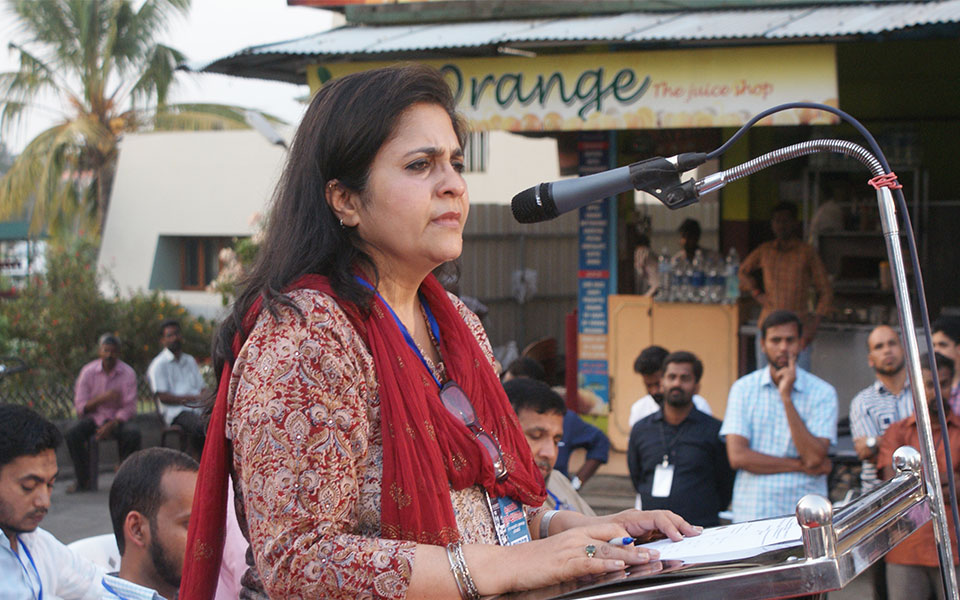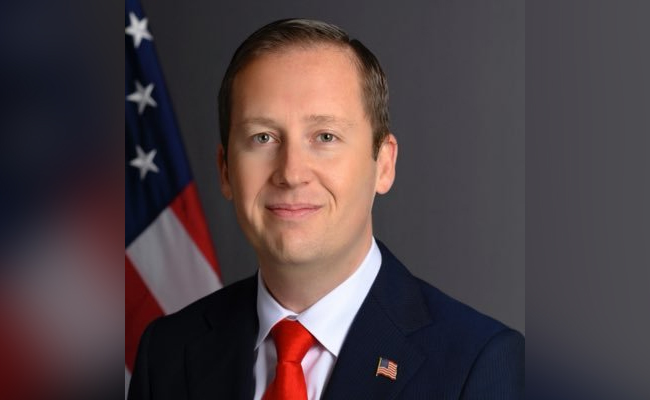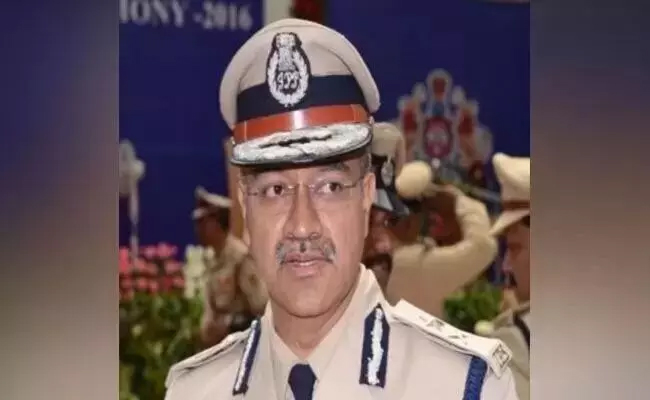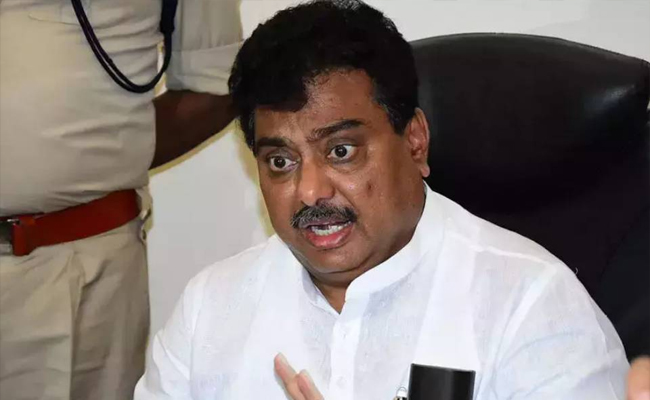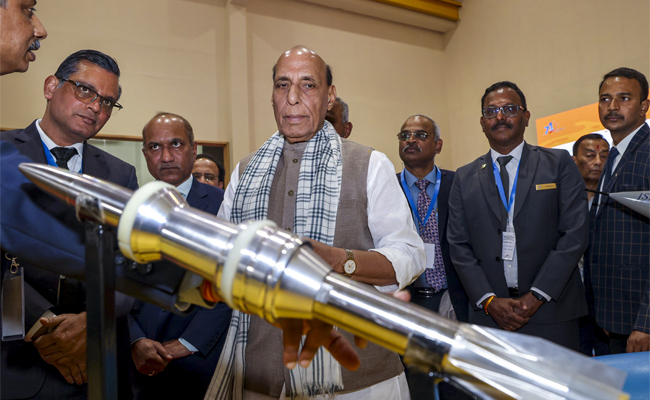New Delhi: A complaint has been lodged with the Gujarat police charging Teesta Setalvad and her NGO Sabrang Trust with trying to "mix religion with politics" and spreading disharmony through the curricular material prepared for the erstwhile UPA government which had given it a grant of about Rs 1.4 crore.
The complaint, lodged with the Ahmedabad city police by Rais Khan Pathan, a former close aide of Setalvad, also took into account the report of a panel of the Ministry of Human Resource Development which in its finding has claimed that a prima facie case existed against her under section 153A and 153B of IPC for promoting enmity on grounds of religion and imputations, assertions prejudicial to national integration.
Sources said the crime branch of Ahmedabad police has sent a communication to the deputy secretary, department of school education and literacy of the Union HRD Ministry, urging it to "furnish point-wise reply on the application/ complaint at the earliest".
They said the ministry is yet to submit its response to the communication sent in November last.
The HRD Ministry in 2016 had sought the opinion of the top law officer endorsing the report of its three-member committee, saying "the report of the inquiry committee is exhaustive and deals with every aspect of the matter and that action as suggested in the said report may be undertaken in terms of fixing liabilities/lapses, action for inciting disharmony and hatred and also for recovery of the money as is stipulated in the scheme itself".
Pathan had filed the complaint in November last year with the crime branch of the Ahmedabad police on the basis of the report against Setalvad, her husband Javed Anand, officials of the Sabrang Trust and unknown officials of the HRD Ministry.
He sought investigation and prosecution for the alleged offence of criminal conspiracy, criminal misappropriation of property, criminal breach of trust by public servants, promoting enmity between different groups on the ground of religion, among others.
Pathan has alleged that a large amount from the HRD funding was used during 2008 to 2014 on 'Khoj' project of the Sabrang Trust under the scheme of 'National Policy on Education' in Maharashtra and Gujarat as well as on the 'Peace Building and conflict resolution' project.
The project was launched by Setalvad's NGO in some districts of Maharashtra and Gujarat.
The HRD panel claimed to have gone through "a sizeable portion" of written materials prepared by Setalvad for the trust and 'Khoj' for teachers and the students of class V and VI, with the complaint alleging it contained "explosive literature" which reflected "hatred" and "venom", thereby falling under sections 153A and 153B of the IPC.
Pathan in his complaint has claimed that the three-member panel, comprising Supreme Court lawyer Abhijit Bhattacharjee, Gujarat Central University Vice Chancellor S A Bari and Ministry official Gaya Prasad, had confirmed that the then officials of HRD Ministry in connivance with trustees of Sabrang Trust illegally sanctioned the funds under the 'Sarva Shiksha Abhiyaan'.
"Large amounts were also transferred as donation from Sabrang trust to Citizens for Justice and Peace (CJP), another NGO of Teesta Setalvad which too was used for various activities such as payment of salary to office staff in Gujarat, travelling expenses to riot victims of Gujarat, advocate fees and on various campaigns launched in Gujarat against the state government," Pathan's complaint alleged.
The HRD panel, which had questioned the grant of money to the tune of Rs 2.05 crore, out of which Rs 1.39 crore was released as the trust was unable to utilise 50 per cent of the amount, said one of the reasons for its ineligibility was that the documents of the trust suggested "brazen contempt of Supreme Court by Setalvad in her writing".
The report had said the committee was of the view that there was "a hiatus between the theory and practice" of the trust as it was simply "whipping up identity politics" claiming it was not conducive to the avowed purpose for which the trust had said in its application form.
It alleged that the public money given under the scheme of 'Sarv Shiksha Abhiyan' to the trust/'Khoj' was "clearly found to be spreading disharmony, feeling of enmity, hatred and ill will etc".
Let the Truth be known. If you read VB and like VB, please be a VB Supporter and Help us deliver the Truth to one and all.
New Delhi: A visit by the US Ambassador to India, Sergio Gor, to Chandigarh on Monday has triggered sharp criticism from opposition leaders and social media users, raising questions about national security and foreign policy.
On X, Ambassador Gor announced his visit, writing, “Just landed in Chandigarh. Looking forward to visiting the Western Command of the Indian Army.”
Just landed in Chandigarh. Looking forward to visiting the Western Command of the Indian Army
— Ambassador Sergio Gor (@USAmbIndia) February 16, 2026
Soon after, opposition voices questioned the broader implications of the visit. Congress Kerala, in a post, commented, “Why so much panic? We’ve already seen Pakistan's ISI getting access to Pathankot Airbase with this government's blessings. Didn't they say then ‘Modi ne kiya ho to kuch soch samajh kar kiya hoga?’ Compared to that, this is very small.”
Why so much panic? We’ve already seen Pakistan's ISI getting access to Pathankot Airbase with this government's blessings.
— Congress Kerala (@INCKerala) February 16, 2026
Didn't they say then "Modi ne kiya ho to kuch soch samajh kar kiya hoga?"
Compared to that, this is very small. pic.twitter.com/gNNuAGQBPC
Shiv Sena (UBT) leader Priyanka Chaturvedi also weighed in, writing, “Since India’s national strategic interests are now tied to what US wants India to do, this visit seems to sync with that.”
She further added, “India’s history will remember the de-escalation announcement between India and Pak was announced on social media by the US President before Indians got to know from their own government. US Ambassador is doing the job for his nation, who is doing for us? The answer is blowing in the wind.”
Since India’s national strategic interests are now tied to what US wants India to do, this visit seems to sync with that. India’s history will remember the de-escalation announcement between India and Pak was announced on social media by the US President before Indians got to… pic.twitter.com/rYMq5NhJHA
— Priyanka Chaturvedi🇮🇳 (@priyankac19) February 16, 2026
The visit comes against the backdrop of the growing US-India defence partnership.
Writer and political analyst @rajuparulekar commented on ‘X’, “East India Company is back!”
“Is it allowed for an ambassador to visit any army unit in india?” asked another user.
Several X users expressed concerns over the appropriateness of the visit.
One asked, “Is it allowed for an ambassador to visit any army unit in India?” Another wrote, “Why an ambassador visiting our army places? To talk to Chandigarh lobby for F-35?”
Why an ambassador visiting our army places ? To talk to chandigarh lobby for f-35 ??
— Rohan Sagar (@RohanSagar03) February 16, 2026
“We have completely sold Indian sovereignty. Rothschild the evil Bankers will now control NSE. Modi sold Bharat Mata to Trump . And now American imperialist is visiting our army command . Scary,” wrote another user.
“The Indian Army isn’t part of geopolitics, so why is he interested in visiting there?,” opined another.
The Indian Army isn’t part of geopolitics, so why is he interested in visiting there?
— Aditya Pratap Singh (@Adi_IIMCIAN) February 16, 2026
On Sunday, Gor welcomed Admiral Samuel Paparo, Commander of the United States Indo-Pacific Command (INDOPACOM), highlighting efforts to expand the growing US-India defence partnership.
In a post on X, Gor wrote, “Delighted to have @INDOPACOM Commander Admiral Samuel Paparo in India to expand the U.S.-India defense partnership. Now is the time to strengthen vital cooperation between our two nations.”
On Monday, Admiral Samuel J. Paparo Jr visited the headquarters of India’s Western Army Command along with the American envoy Sergio Gor. The delegation was briefed on the formation’s capabilities, its past operations, and future plans.
The American delegation also visited Bengaluru, where they met three start-ups, two in the space sector and one in defence, and participated in an Indo-US conference.

